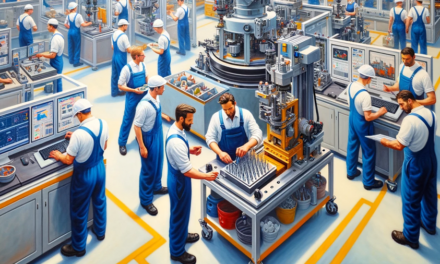A recent study by the University of Cologne underscores the significance of continuous learning and development for older employees to enhance their motivation in the workplace.
Published in the Journal of Organisational Behaviour, the research, led by Professor Anne Burmeister, examines the impact of older workers seeking knowledge from their younger counterparts.
Professor Burmeister’s study delves into the positive and negative effects of workers aged 45 and above engaging in knowledge exchange with younger colleagues. Contrary to conventional assumptions, the findings suggest that older employees experience higher work motivation and improved workability when they have the opportunity to learn something new from their younger peers.
“Older workers exhibit heightened motivation when they embrace learning opportunities from their younger counterparts,” highlights Professor Burmeister.
Promoting Collaboration and Learning
While the benefits of knowledge transfer across generations are evident, the research also uncovers challenges faced by older employees in seeking knowledge from younger colleagues. The study indicates that older workers may feel discomfort or embarrassment due to societal norms that traditionally position them as knowledge providers rather than learners.
Professor Burmeister underscores the importance of fostering positive intergenerational dynamics in the workplace to mitigate such discomfort. “Encouraging high-quality interactions between employees of different age groups can foster mutual understanding and reduce barriers, leading to higher levels of intergenerational affect,” she explains.
The study’s findings highlight the need for organisations to create conducive environments that promote collaboration and knowledge exchange across age groups. By embracing continuous learning initiatives and fostering positive intergenerational relationships, employers can enhance motivation and workability among older employees, ultimately contributing to a more dynamic and inclusive work culture.






